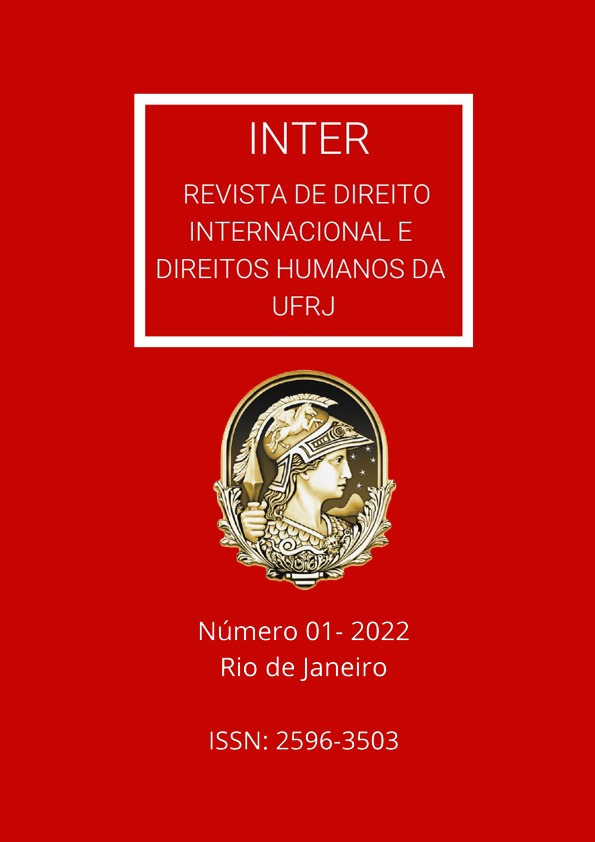Preventing Conflict: China’s claim to the South China Sea and Mechanisms for Peace.
Palabras clave:
South China Sea, Peaceful Use of the Sea, Freedom of the SeaResumen
This paper examines China’s claim to the South China Sea, focusing on how to maintain peace in a region with competing claims through codified law or external mechanisms. The first part of the paper examines the different levels of China’s claim to ninety percent of the South China Sea, starting from its historical claim to its territorial claim. Additionally, an in-depth look is given to the provisions of the United Nations Convention of the Law of the Seas, and how China’s claim conflicts with these provisions. The second part of the paper goes through the section of the dispute settlement provisions of the Convention, addressing the general provisions, procedures, and limitations concerning dispute resolution. The critiques of the dispute settlement provisions are addressed, alongside the lack of an enforcing body. Lastly, the external mechanisms that State parties can take to maintain peace with the region are analyzed, from other conventions to commercial responses.
Descargas
Citas
ALLEN, Edward W.. Freedom of the Sea In: The American Journal of International Law v. 60. Washington: American Society of International Law, 1966. p. 814-816
ASEAN - Association of Southeast Asian Nations. DECLARATION ON THE CONDUCT OF PARTIES IN THE SOUTH CHINA SEA. Internet: <<https://asean.org/declaration-on-the-conduct-of-parties-in-the-south-china-sea-2/>>. Access 31 October 2021.
BBC. Why is the South China Sea Contentious?. London: BBC, 2016. Internet: <<https://www.bbc.com/news/world-asia-pacific13748349>> Access 31 October 2021.
BURGESS, Stephen. Confronting China’s Maritime Expansion in the South China Sea: A Collective Action
Problem In: Journal of Indo-Pacific Affairs. Fall 2020. Maxwell: Air University, 2020. p. 112-134.
CFR - Council on Foreign Relations, China’s Maritime Disputes: 1895 – 2020. New York: CFR, 2021. Internet: <<https://www.cfr.org/timeline/chinas-maritime-disputes.>> Access 31 October 2021.
CFR - Council on Foreign Relations. Territorial Disputes in the South China Sea. New York: Council on Foreign Relations, 2021. Internet: << https://www.cfr.org/global-conflict-tracker/conflict/territorial-disputes-south-china-sea.>> Access 31 October 2021.
DWORKIN, Ronald. Le Positivisme. Révue Droit et Société. Paris: L.G.D.J., 1982.
GAERTNER, Marianne P.. The Dispute Settlement Provisions of the Convention on the Law of the Sea: Critique and Alternatives to the International Tribunal for the Law of the Sea. iN: San Diego Law Review v. 19. San Diego: University of San Diego, 1982. p. 577-597.
GIDDENS, Anthony. Mundo em Descontrole. Rio de Janeiro: Record, 2000.
GROTIUS, Hugo. The Free Sea. Indianapolis: The Liberty Fund, 2004.
MALIK, Mohan. Historical fiction: China’s South China Sea Claims. In: World Affairs v. 176, no. 1. London: Sage, 2013. p. 83-90
MASAHIRO, Miyoshi. Peaceful Use of the Sea and the Rule of Law. In: Asian Yearbook of International Law v. 22. Leiden: Brill, 2016. p. 5-19
MASTRO, Oriana Skylar. How China is Bending the Rules in the South China Sea. In. The Interpreter. Sidney: Lowy Institute, 2021. Internet: <<https://www.lowyinstitute.org/the-interpreter/how-china-bending-rules-south-china-sea.>>. Access 31 October 2021.
ROBERTS, Christopher. The South China Sea: Beijing’s Challenge to ASEAN and UNCLOS and the Necessity of a New Multi-Tiered Approach. In: RSIS Working Paper series. no. 307. Singapore:Nanyang Technological University, 2017. Internet: <<https://hdl.handle.net/10356/85477>>. Access 31 October 2021.
SCOVAZZI, Tulio. The evolution of international law of the sea: new issues, new challenges. IN Collected Courses of the Hague Academy of International Law. Leiden: Martinus Nijhoff Publishers, 2000.
TANAKA, Yoshifumi. The International Law of the Sea. Cambridge: Cambridge University Press, 2012.
THOMSON, Andrew J.. Keeping the Routine, Routine: The Operational Risks of Challenging Chinese Excessive Maritime Claims. Richmond: Naval War College, 2004.
UN - UNITED NATIONS. The Island of Palmas case (Netherlands v. USA). In: Recueil de Sentences Arbitrales v. II. New York: United Nations, 2016.

